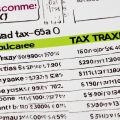Last Updated on: 28th August 2025, 05:44 am
Have you ever wondered if your income level might qualify you for a reduction in your Council Tax bill? With the rising cost of living across the UK, many households are seeking relief through support schemes. One of the most important among them is the Council Tax Reduction (CTR) scheme.
However, to benefit from it, understanding what counts as “low income” is essential. It’s not just about how much you earn, but also your living situation, savings, and the people you live with. Many eligible individuals and families miss out on this help simply because they don’t know they qualify.
This guide breaks down everything you need to know about low income thresholds, eligibility criteria, and how the system works. By the end, you’ll have a clear understanding of whether you’re entitled to pay less Council Tax and how to take the next steps.
What Does ‘Low Income’ Mean for Council Tax Reduction?
When it comes to Council Tax Reduction, “low income” is defined based on how much money you have coming in weekly, your living arrangements, and household size. If your earnings fall below certain thresholds, you may qualify for a reduction in your Council Tax bill.
Typically, the following situations classify someone as low income:
- You have no income at all
- You’re single and earn less than £321 per week
- You live with a partner or children and earn under £479 per week
- Your income is mostly from benefits or part-time work
Other influencing factors include:
- Your capital and savings are below £16,000 unless you’re receiving the guarantee credit part of Pension Credit
- You live in the property as your main residence
- You meet certain residency and immigration conditions
Even if your income exceeds these limits slightly, you may still receive partial support. The specific thresholds and rules can vary by local authority.
That’s why it’s important to check your eligibility with your council directly. Understanding how low income is defined helps you know where you stand and what help you might be missing.
How Much Can You Earn and Still Qualify?

Knowing how much you can earn and still qualify for Council Tax Reduction is a key part of understanding your eligibility.
This support isn’t only for those with no income; it’s also available to many low earners who meet certain income and capital conditions.
Weekly Income Thresholds
The most commonly used benchmarks include:
| Household Type | Weekly Income Threshold |
| Single Person | £321 or less |
| Couple or Family | £479 or less |
These are not fixed across every council but give a general indication. If your income falls below these levels, you’re likely eligible for the maximum discount. If your income is slightly above, a smaller reduction may still be available.
Impact of Children or a Partner on Income Limits
Your household composition directly impacts income thresholds. Living with a partner or dependent children increases the threshold. However, it also factors in your total household income, including your partner’s income. So while the ceiling is higher, combined earnings are considered.
Key points include:
- A higher threshold applies to households with children
- All adults’ incomes in the home are included
- You may still qualify for a partial reduction even with a moderate income
How Working Part-time or Receiving Benefits Affects Eligibility?
If you’re working part-time or relying on benefits, you can still be classed as low income. Earnings from part-time work may fall within the accepted limits. Many people on Universal Credit or other income-related benefits automatically qualify.
Important benefits that support eligibility include:
- Universal Credit
- Income Support
- Jobseeker’s Allowance (income-based)
- Employment Support Allowance (income-related)
Your working hours and benefit entitlements are carefully assessed. If you’re not on benefits but earn below the threshold, you can still apply and may qualify. Councils use benefits calculators or means-testing to assess your case. Understanding these components ensures you’re not overlooking support you could receive.
What Other Factors Affect Eligibility Besides Income?

Income is important, but it’s not the only factor councils consider when deciding if you qualify for a Council Tax Reduction. Other elements of your financial and personal situation influence the outcome.
Key eligibility factors include:
- Capital and Savings: If you have over £16,000 in capital or savings, you usually won’t qualify unless you’re receiving the guarantee part of Pension Credit.
- Household Size: More people living in your home means different income thresholds. Each adult’s income is considered unless they’re exempt.
- Non-dependent Adults: If someone who isn’t your partner lives with you, their income may reduce the amount you’re eligible for through what’s called a non-dependent deduction.
You’ll also need to meet basic requirements, such as:
- Being the person responsible for paying the Council Tax
- Living in the property as your main home
- Meeting residence and immigration criteria
The council will look at all these aspects together to decide what level of support you’re entitled to. Just because your income is low doesn’t automatically mean you’ll get the full discount.
A full application will ask for details on your household and finances to make a fair decision. Make sure to have all this ready when applying.
What Types of Council Tax Support Are Available?
There are several types of support that help reduce your Council Tax bill, and your eligibility depends on which one provides the most benefit based on your circumstances.
The main support options include:
- Council Tax Reduction (CTR): This is the most common form and applies to those on a low income or receiving qualifying benefits. It’s calculated based on your income, savings, and household setup.
- Council Tax Bands E to H Relief: If you live in a property classified as band E, F, G, or H, and your income and savings fall below specific levels, you may qualify for relief. This scheme is designed to assist those in higher-band homes who are still financially struggling.
- Second Adult Rebate: If you share your home with another adult who is not your partner and they have a low income, you may qualify for a rebate. This is calculated based on the second adult’s income, not yours.
Your local council will assess all schemes and determine which gives you the most support. You don’t need to apply separately for each.
Can You Qualify Without Being on Benefits?
Yes, it’s entirely possible to qualify for Council Tax Reduction even if you are not on any benefits. The system is designed to assist people with low earnings and modest capital who may not receive any government support.
You might be eligible if:
- Your income falls below the defined thresholds for your household
- You have savings or capital under £16,000
- You meet the residence rules and are responsible for paying Council Tax
Councils assess your income from all sources, including employment and pensions. They then calculate your entitlement through means-testing.
Situations where you could still qualify include:
- Working part-time or full-time, but earning modest wages
- Living in a higher-band property but on a lower income
- Living alone or with a non-dependent adult on a low income
Even if you’re not receiving Universal Credit or Pension Credit, you can apply directly to your council for a reduction. The application process will include questions about your earnings and household, and each council makes the decision based on your full financial picture.
How Do Capital and Savings Impact Eligibility?

Your savings and capital can significantly influence whether you qualify for Council Tax Reduction. The general rule is that if your capital exceeds £16,000, you won’t be eligible unless you’re receiving certain types of Pension Credit.
Savings and capital include:
- Money in bank accounts
- Premium Bonds
- Property (other than your main home)
- Investments
If you’re part of a couple, your total joint capital is considered. Even if your personal savings are low, your partner’s funds will be factored in.
There are exceptions:
- If you receive the guarantee part of Pension Credit, your capital is not counted
- Some types of income and capital may be disregarded based on council rules
It’s important to note that local councils may apply tapering. This means the more savings you have (under £16,000), the smaller the discount you may receive. Accurate declaration of your assets is crucial during application, and failure to disclose can delay or deny your claim.
Keep in mind that just because your capital is under the threshold doesn’t mean automatic approval. The overall picture, including your income and other circumstances, will be reviewed.
What Role Does Residency and Immigration Status Play?
To qualify for Council Tax Reduction, you must meet strict residency and immigration conditions. These rules ensure that only individuals with legal and long-term residence in the UK can claim public support.
Basic requirements include:
- You must live in the UK, and the property should be your main residence
- You should not be subject to immigration control
- You need to pass or be exempt from the habitual residence test
People who automatically meet these criteria include:
- British citizens
- Refugees or those with humanitarian protection
- Those with discretionary or exceptional leave to remain
- Individuals under recognised resettlement schemes
You may also qualify if you’re:
- A Crown servant or armed forces member posted overseas
- A family member of someone with legal residence and work rights in the UK
- From a country with reciprocal agreements like the European Social Charter
If you’re from the EU and have settled status, you generally have the right to reside. Those with only pre-settled status must demonstrate additional eligibility.
Meeting residency criteria is as essential as meeting financial thresholds. Councils will ask for documentation to confirm your status before granting any reduction.
How Do Other Adults in the Household Affect Your Reduction?
The presence of other adults in your home who are not your partner can affect how much Council Tax Reduction you’re eligible for. This is due to something called a non-dependent deduction.
Non-dependents are adults living with you who:
- Are over 18
- Not your partner
- Not liable to pay Council Tax themselves
- Not exempt due to being a student, care leaver, or in a similar categories
The council expects these adults to contribute towards the household bills, including Council Tax. As a result, your entitlement to CTR may be reduced.
Deductions are based on their income levels, not yours. If they have a low income, the deduction may be minimal. However, if you do not provide information about their income, councils may assume the highest possible income bracket, which will lower your discount.
In contrast, the Second Adult Rebate might be available if:
- You are the sole liable person for Council Tax
- You live with a non-dependent adult on a low income
- Your income is not assessed, only the second adult’s
This can be helpful if you’re not entitled to CTR based on your income, but another adult in your home meets the criteria. You can only receive one form of support, whichever gives you the greater reduction.
How Is the Amount of Council Tax Reduction Calculated?

Your Council Tax Reduction is calculated using a means-tested process. This method reviews your income, savings, household makeup, and other key details to determine how much support you can get.
The key factors used in the calculation include:
- Total weekly income from work, pensions, and benefits
- Capital and savings value
- Number of dependents or other adults in the household
- Applicable deductions, such as for non-dependents
The more income or savings you have, the less help you’re likely to receive. If you have no income or benefits only, you’re typically eligible for the maximum reduction.
The council may also apply a taper rate, where your support decreases as your income rises above a certain level. For example, earning slightly over the threshold may mean you still get a small discount, just not the full amount.
You can use online calculators provided by councils or government websites to estimate how much reduction you might receive. While these tools don’t guarantee your final figure, they provide a helpful guide before you apply.
Can You Also Get Help with Water and Sewerage Charges?
Yes, if you’re eligible for Council Tax Reduction, you may also receive help with your water and sewerage charges. This discount is designed to ease the financial burden for those with low incomes.
To qualify, the basic requirements are:
- You must receive Council Tax Reduction
- You must not already have a separate discount for these charges
The reduction can be up to 35% off your water and sewerage charges.
For instance:
- If your Council Tax Reduction is 100%, you’ll get 35% off water and sewerage
- If you get a 50% CTR, you’ll still get the full 35% off these charges
This discount is automatically applied by your local authority once you’re approved for CTR. There’s no need for a separate application, though it’s worth checking your Council Tax bill to confirm it’s been added.
The amount you pay for water and sewerage varies by region, but this additional relief can result in substantial annual savings. It’s another reason why applying for Council Tax Reduction is worth considering, even if you’re unsure about full eligibility.
How to Apply for Council Tax Reduction?

If you think you may qualify, the next step is applying for Council Tax Reduction. The process is fairly straightforward, but it’s important to provide complete and accurate information.
Step-by-step Guidance
Here’s how to apply:
- Visit your local council’s website: Each council manages its own scheme
- Complete the CTR application form: Online or in paper format
- Submit supporting documents: Includes proof of income, savings, and ID
- Await assessment: The council will calculate your entitlement
- Receive your new bill: Showing the reduced Council Tax amount
Make sure you respond to any requests for additional information quickly. Delays in providing evidence can hold up your application.
Where to Apply?
You must apply through your local council, as CTR schemes can vary by area.
You can:
- Search for your council at GOV.UK
- Use local authority websites directly
- Call or visit a local council office
Your council will also help determine whether CTR, Second Adult Rebate, or E to H Relief gives you the most discount.
What Documents and Info You’ll Need?
When applying, be prepared with:
- Your National Insurance number
- Proof of income and benefits
- Bank statements and savings evidence
- Details of people in your household
- Your most recent Council Tax bill
Having these documents ready speeds up the process and increases your chance of early approval. The council may contact you for further clarification or missing info, so stay alert after applying.
Submitting a complete and accurate application ensures you don’t miss out on help. You can usually backdate your application if you were eligible in previous months but didn’t apply right away.
What If You’re Temporarily Away from the UK?

Being away from the UK temporarily doesn’t always disqualify you from receiving Council Tax Reduction. In many cases, you’re still treated as present in the country depending on your reason for absence.
You are still eligible if:
- You’re away for up to one month for any reason
- You’re absent due to the death of a close relative and expected to return within two months
- You’re receiving medical care for up to six months
- You’re posted overseas as a Crown servant or in HM Forces
There are also exceptions for:
- Mariner and aircraft workers with UK contracts
- People working on oil rigs or similar sites in the EU or Norwegian waters
If your partner is posted overseas and you’re accompanying them, you’re also treated as being present in the UK. The key is maintaining your intention to return. If you move permanently or lose residency status, you may lose eligibility.
You should inform your council about any extended absences. Failure to do so could impact your claim or lead to overpayment, which would need to be repaid.
Conclusion
Understanding what qualifies as low income for Council Tax Reduction can help you unlock valuable savings on your household bills. Whether you’re receiving benefits or simply earning a modest income, there’s a good chance you’re entitled to some form of support.
It’s not just your earnings that matter, but also your savings, who you live with, and even your immigration status. With different schemes tailored for various circumstances, applying for CTR could significantly reduce your financial pressure.
Take the time to explore your eligibility, use online calculators, and contact your local council for personalised advice. Don’t miss out on financial help you may already qualify for. Taking action today could lighten your monthly expenses tomorrow.
FAQs
What is the income limit for Council Tax Reduction in the UK?
If you’re single, it’s usually around £321 per week, and £479 per week if you have a partner or children. These limits vary slightly by council.
Can I get Council Tax Reduction if I work part-time?
Yes, part-time workers can qualify if their earnings fall below the income threshold. Your exact entitlement depends on your total income and savings.
Do savings affect my Council Tax Reduction eligibility?
Yes, if you have over £16,000 in savings, you’re usually not eligible. Some exceptions apply if you’re on Pension Credit.
What happens if another adult lives with me?
Their income might reduce your CTR through a non-dependent deduction. Alternatively, you may qualify for Second Adult Rebate based on their income.
Can I get help with water bills if I qualify for CTR?
Yes, you may receive up to a 35% reduction on water and sewerage charges. This is usually applied automatically.
Do I need to be on benefits to qualify for CTR?
No, you can still qualify if your income is low and savings are under the threshold. Benefit status may increase your discount but isn’t always required.
Can I apply for Council Tax Reduction if I’m temporarily abroad?
Yes, certain absences like medical care or military posting still count you as present in the UK. You must intend to return and inform your council.




















No Comments
Leave a comment Cancel